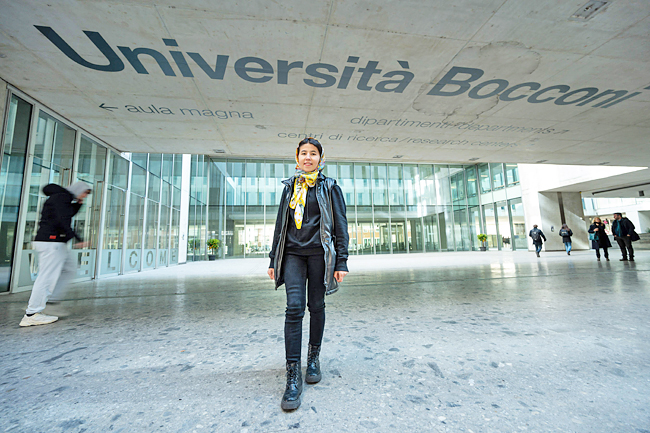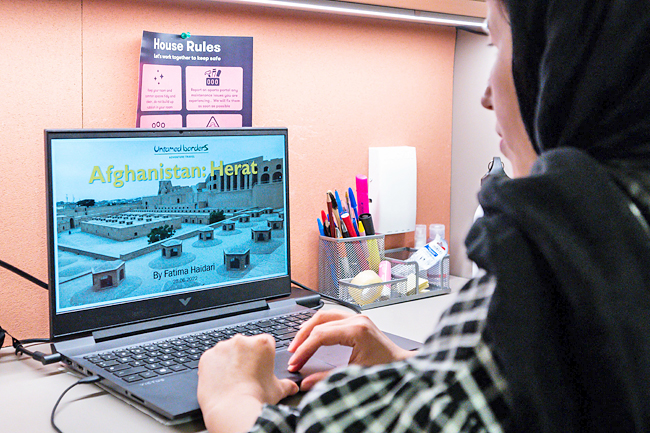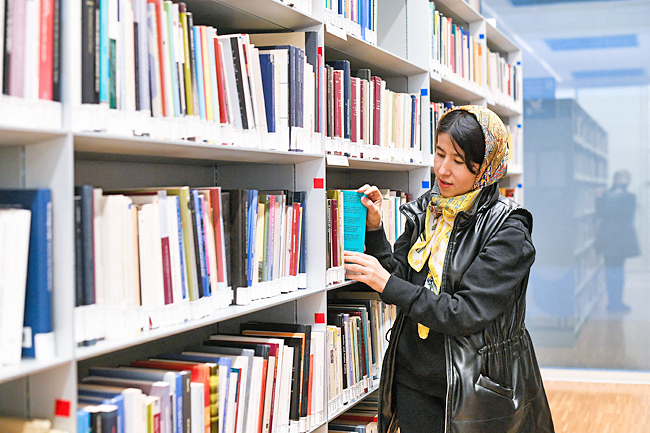MILAN (AFP) – Forced to flee by the Taleban, Fatima Haidari now offers virtual tours of Afghanistan from her new home in Italy – with the proceeds funding secret English classes for women there.
From her student flatshare in Milan, Haidari leads cyber-tourists around the western Afghan city of Herat, using Zoom to show them the grand mosque with its glazed tiles, the citadel and the bustling bazaar.
The 24-year-old worked as a tour guide in Herat before fleeing when the Taleban took power in August 2021, and is now studying international politics at Milan’s Bocconi university.
But she remains passionate about showing outsiders the beauty of her country, even if few tourists currently dare visit.
“When you hear about Afghanistan, you think of war, terror and bombs,” Haidari told in the little kitchen she shares with four other students. “I want to show the world the beauty of the country, its culture and its history.”



Organised through British tour operator Untamed Borders, the events draw people from Britain to Australia, Germany and India.
A third of the money goes towards secret English classes for young women back in Afghanistan.
The Taleban have imposed harsh restrictions on women since returning to power, including closing secondary schools and universities for girls and women.
Haidari herself faced insults after becoming the first female tourist guide in Afghanistan.
Local religious leaders accused her of “doing the devil’s work”, particularly when accompanying men, while boys threw stones at her in the street.
Haidari is passionate about education, after battling her whole life for access to books.
Growing up in the mountains in the central region of Ghor, the youngest of seven children, her parents made her look after the sheep.
“I would take the sheep out to graze by the river where the boys had school and secretly listen to their lessons,” she recalled.
“As I didn’t have a pen, I would write in the sand or in clay.”
When she was 10, her impoverished family moved to Herat, where they could not afford to send her to school. For three years she worked at night on home-made items such as traditional clothes, to raise enough money to pay for classes and textbooks.
She managed to persuade her parents to allow her to go to university in Herat, where she began studying journalism in 2019.
“They wanted me to become a perfect housewife. But I didn’t want to follow the same path as my two sisters and face an arranged marriage,” Haidari said.
In September last year, she joined around 20 refugee students welcomed by Bocconi University in Milan. Wearing a black headscarf and leather gilet, jeans tucked into her boots and her laptop in a bag on her back, she look like any other student on campus.
But she never forgets the plight of women back home.
“They are confined to the house, it is as if they are locked in a prison or in a grave where they are buried alive,” she said.
Haidari is a member of Afghanistan’s minority Hazara community.
When the Taleban arrived, she was warned by the local tour operator she worked for that she might be a target, and fled.
Leaving Afghanistan was traumatic. At Kabul airport, there were desperate scenes as thousands of people tried to get a flight out.
“The Taleban were hitting the crowd with Kalashnikovs, bullets were whizzing by my ears and a young girl collapsed dead next to me. I thought I was in a horror movie, but it was real,” she recalled.
She was unable to get onto flights to the United States and Poland, but got on a plane to Rome.
She still dreams of returning home “to set up my own travel agency and hire women as guides”.





